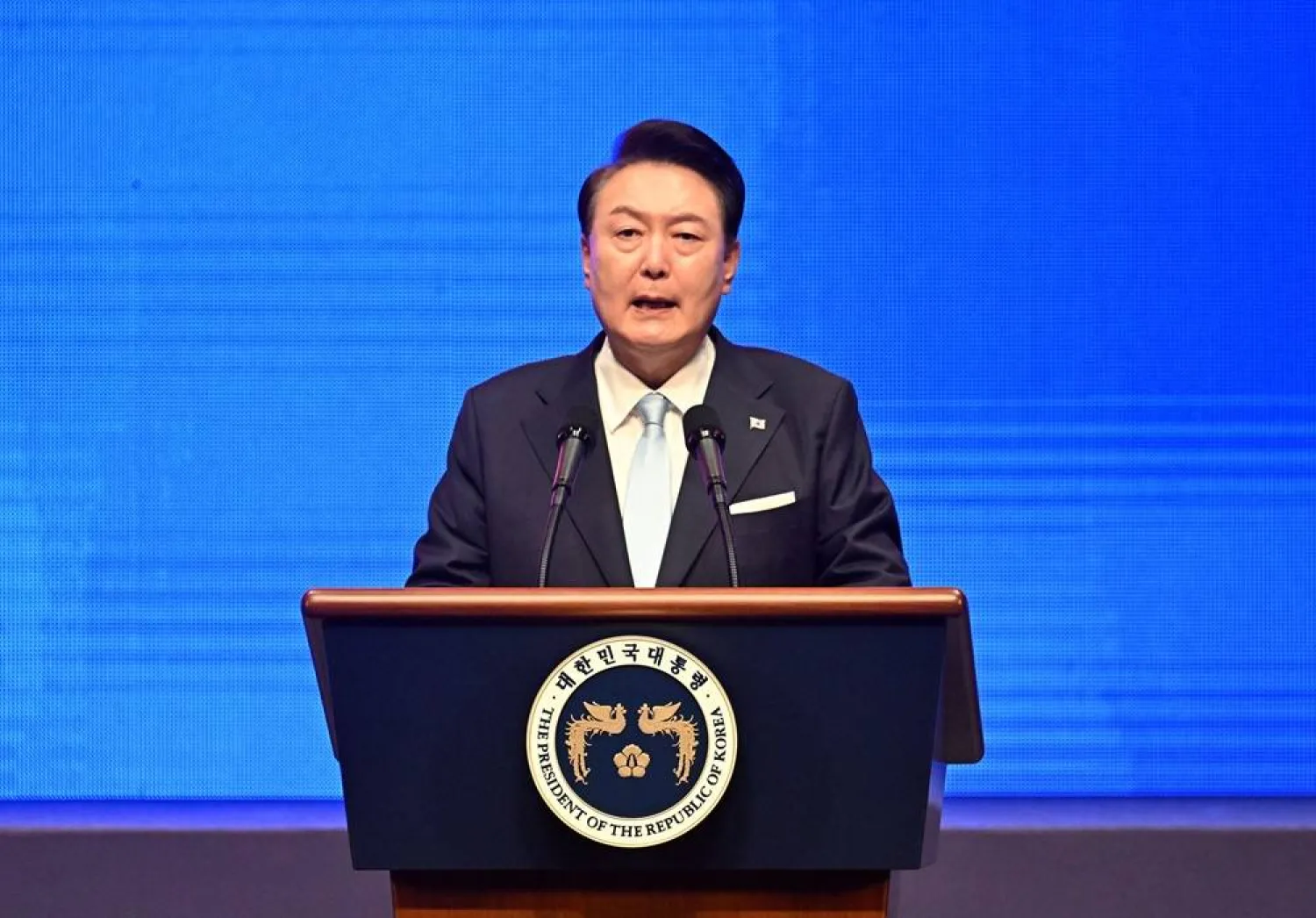South Korean President Yoon Suk-Yeol offered on Thursday to establish a working-level consultative body with North Korea to discuss ways to ease tension and resume economic cooperation, as he laid out his vision on unification of the neighbors.
In a National Liberation Day speech marking the 79th anniversary of independence from Japan's 1910-45 colonial rule after World War Two, Yoon said he was ready to begin political and economic cooperation if North Korea "takes just one step" toward denuclearization.
Yoon used the speech as a chance to unveil a blueprint for unification and make a fresh outreach to Pyongyang, following his government's recent offer to provide relief supplies for flood damage in the isolated North which he said had been rejected.
But a unified Korea appears a distant prospect to most people on both sides of the border. Relations between the neighbors have been at their lowest in decades as the North races to advance its nuclear and missile capabilities and takes steps to cut ties with the South, redefining it as a separate, hostile enemy state.
At the start of the year, North Korean leader Kim Jong Un called South Korea a "primary foe" and said unification was no longer possible.
Yoon said launching the "inter-Korean working group" could help relieve tensions and handle any issues ranging from economic cooperation to people-to-people exchanges to reunions of families separated by the 1950-53 Korean War.
"We will begin political and economic cooperation the moment North Korea takes just one step toward denuclearisation," he said at a ceremony in Seoul.
"Dialogue and cooperation can bring about substantive progress in inter-Korean relations."
The speech came amid a dispute with opposition lawmakers over Yoon's appointment of what they view as a pro-Japan, revisionist former professor to oversee a national independence museum, another sign of political polarisation and divided opinions over Yoon's efforts to ramp up security ties with Tokyo.
Major independence movement groups which had for decades co-hosted the annual National Liberation Day events with the government held a separate ceremony for the first time in protest over the professor, joined by opposition lawmakers.
Yoon's office has said there are "misunderstandings" about the appointment, and was seeking ways to resolve them.
Yoon, in the speech, also raised the idea of a plan to launch an international conference on North Korea's human rights and a fund to promote global awareness on the issue, support activist groups, and expand North Korean residents' access to outside information.
"It is important to help awaken the people of North Korea to the value of freedom," he said, calling for freedoms in the South to be extended to "the frozen kingdom of the North."
"If more North Koreans come to recognize that unification through freedom is the only way to improve their lives and are convinced that a unified Republic of Korea will embrace them, they will become strong, friendly forces for a freedom-based unification."









